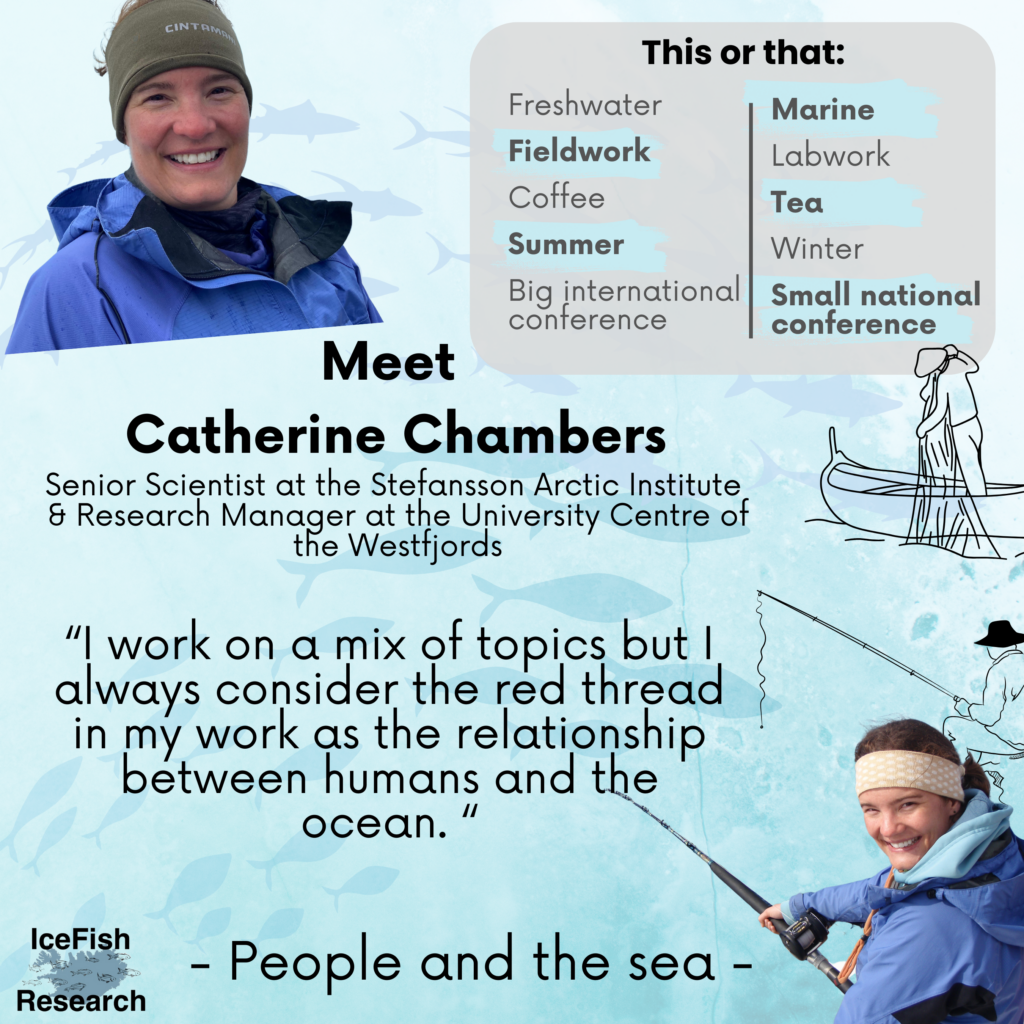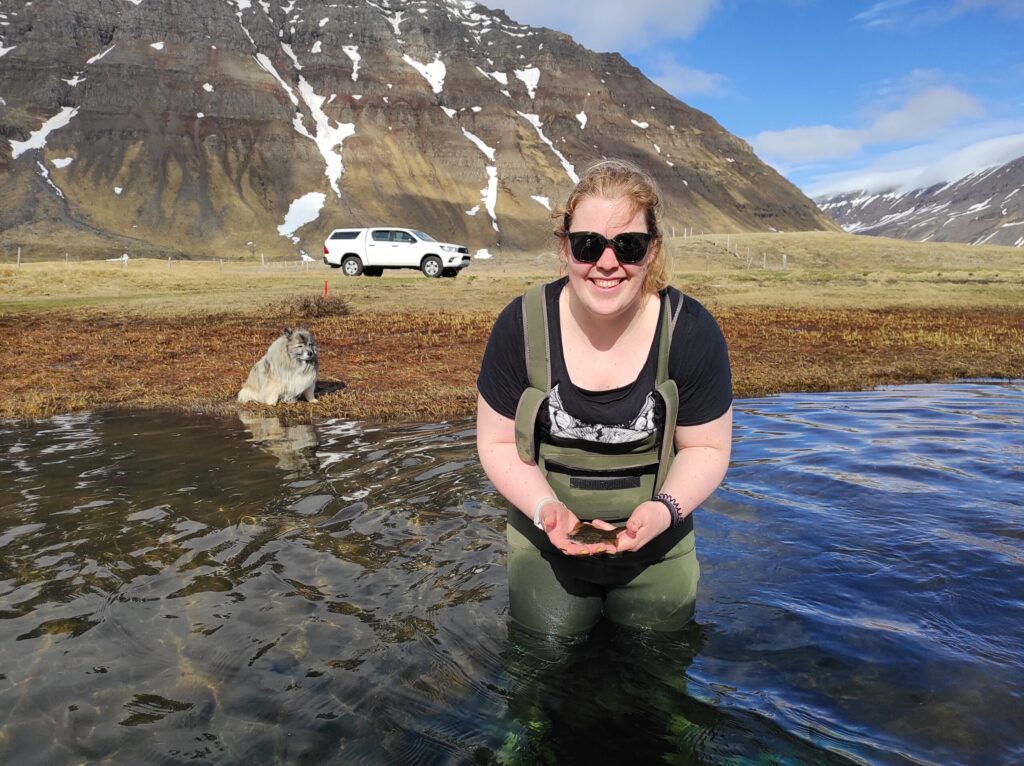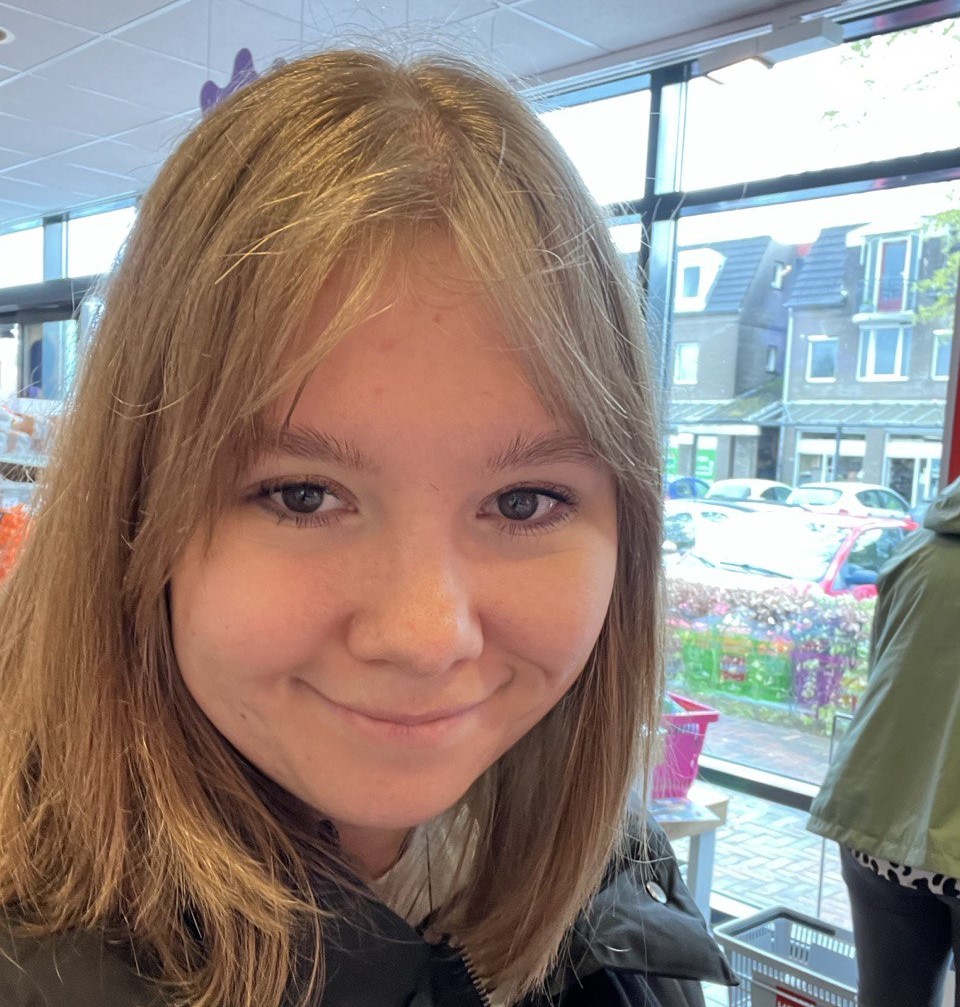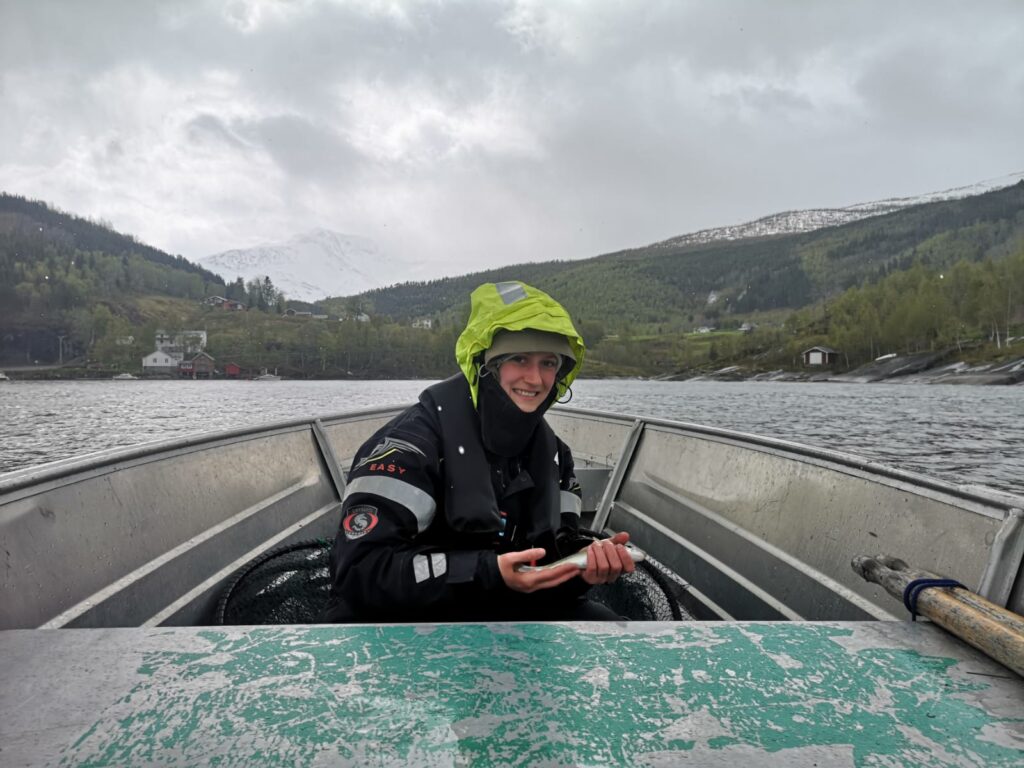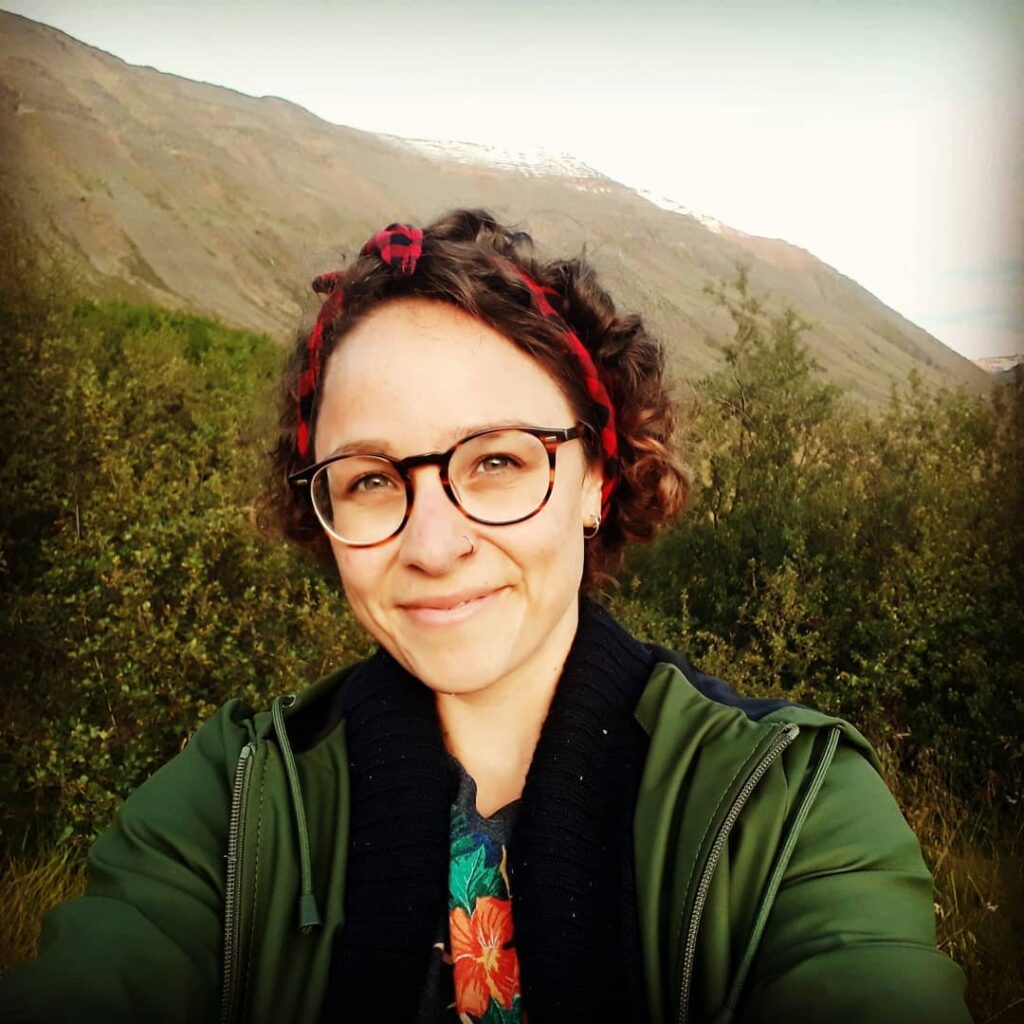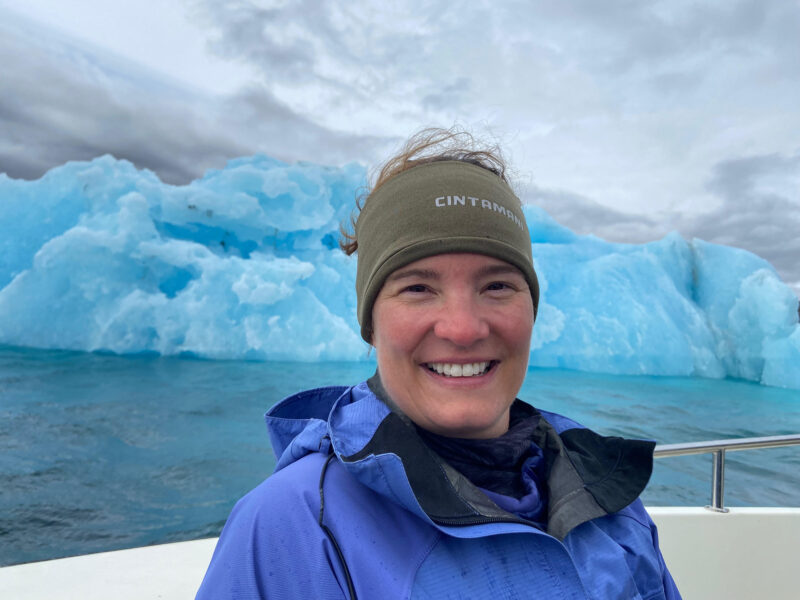
Iceland is a country that has a long history deeply interwoven with the ocean ever since the first settlers crossed over from Norway. In many ways, the sea has shaped Iceland’s society as we know it. So when we talk about fish and fisheries in Iceland, we also have to talk about the role humans play. In the words of Nobel prize winning researcher Dr. Elinor Ostrom on fisheries management: we are not managing fish, we are managing people. This connection between people and the sea is also the driving thought of Catherine Chambers, a scientist based in the Westfjords.
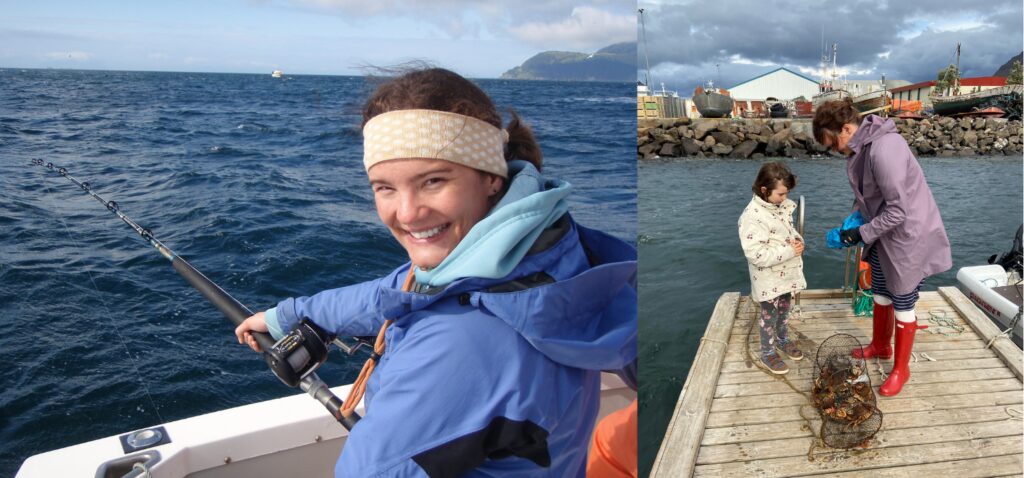
The red thread
Catherine is a scientist with a lot of different research interests. She describes her scientific journey as a very twisty and turny one that took her from working on invasive Japanese knotweed during her undergraduate studies in Environmental Science to a brief stop-over in the pharmacy school. Thinking that this new career path would be more promising on the job market and being driven by the idea of helping people, she came to find out that the reality of health care in the US did not match what she was looking for. So she returned to the Environmental Sciences.
In 2008, Catherine ended up in Iceland and started learning about fisheries. Ever since, the relationship between humans and the ocean has been the red thread throughout her scientific work, starting with taking part in a PhD program in Alaska called “Marine Ecosystem Sustainability in the Arctic and Subarctic” where she got to take classes on topics such as Traditional Ecological Knowledge, Oceanography, and Fisheries Economics. This variety can still be seen in her current research interests that range from the management of sustainable resources (fisheries, seaweed mariculture, driftwood) and marine plastics, to fishers’ knowledge of invasive species, youth and ocean literacy, and the social aspects of energy transitions in small-scale fisheries.
By looking at the connection between humans and the sea, we not only collect valuable information that is crucial for conserving the oceans, we also get to learn and understand more about ourselves, about what it means to be human. Catherine hopes that her work will help critically challenge common believes on human nature, why we act in the way we do, and how we should govern ourselves in connection with marine resources.
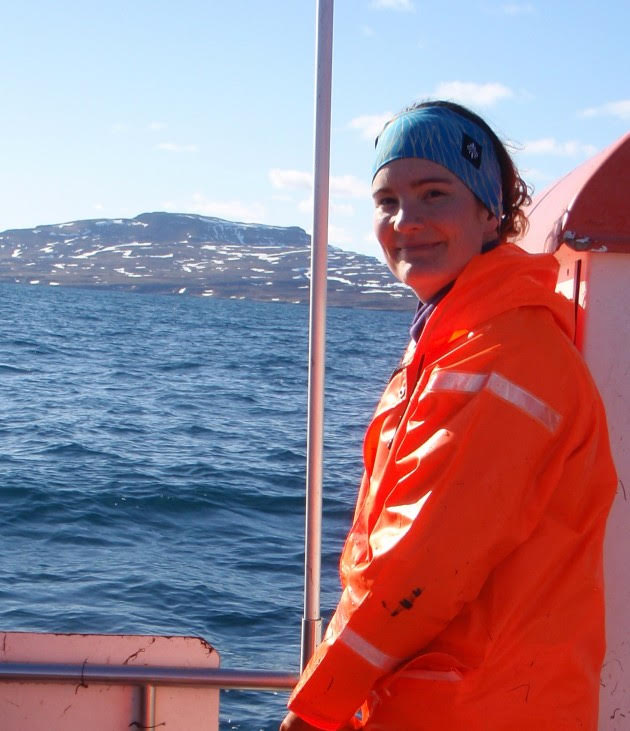
On being a scientist
To Catherine, the most important and exciting part about being a scientist is asking the questions that make you realise what you don´t know. As a scientist it is important to be humble about the knowledge that we already have and the all the answers that we still need to find. One thing that she wishes she would have already known when she started her PhD is that the amount of work that you are expected to do ever-increases when you stay on the academic path following your PhD. So enjoy the time while you can 🙂
